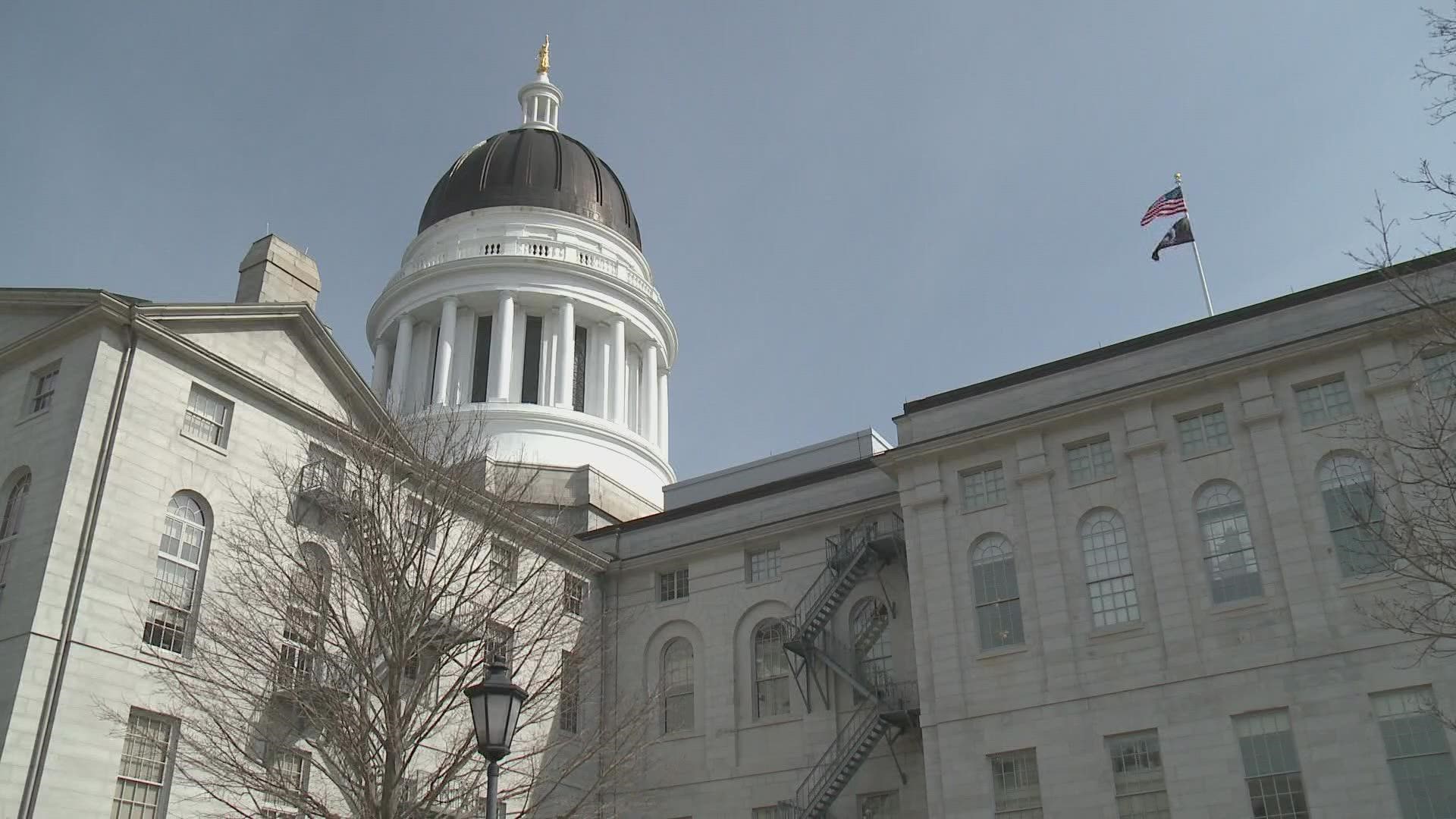AUGUSTA, Maine — On Friday, the third floor of the Maine State House was so quiet it echoed. Most legislators worked from home, engaged in remote committee meetings, and worked on hundreds of bills still awaiting debates and votes.
However, four lawmakers were meeting separately to plan the next steps on what is likely the most significant bill of the session.
The two Democratic co-chairs and two top Republicans on the Appropriations Committee discussed the next steps to deal with a proposed $1.2 billion supplemental budget from Gov. Janet Mills.
That plan uses projected surplus revenue expected to come into state coffers during the coming fiscal year. Mills already submitted her plan for using $822 million of it. Since that was submitted, the state’s Revenue Forecasting Committee projected an additional $411 million in tax revenue would accrue during the same period, bringing the total to $1.2 billion.
The Legislature is now waiting for a “change order” from the governor, detailing how she thinks the added revenue should be used.
The final decisions, however, will be made by Legislators.
“There’s no question Maine people are hurting,” Rep. Teresa Pierce, D-Falmouth, House chair of the Appropriations Committee, said.
Pierce and other legislators in both parties said they need to do what they can to ease the financial pain Mainers are feeling from inflation and the surge in energy costs.
“Inflation’s up, gas prices are up, electricity is up. And we want to make sure we use these funds in the best manner possible to have the best effect and most effect for the greatest number of Mainers,” Pierce said.
Dozens of proposals are in the budget plan for spending the money, ranging from $100 million for roads and bridges to lesser amounts for nursing homes and direct care worker pay raise to funds for a savings account to maintain new school funding levels.
But the budget discussion is driven, in part, by the governor’s plan to return half of the money to Maine taxpayers through $750 checks sent to each of them.
On Friday, Mills told reporters that would be the fastest way to get some financial relief to Mainers and help offset rising costs for everything.
“Let’s get that money back into people’s pockets as soon as possible. Let’s cut those checks,” Mills said.
Rep. Sawin Millett, R-Waterford, said sending relief to Mainers should happen as quickly as possible. But he also warned lawmakers might need to hang on to some of the remaining money.
“The supplemental [budget] with the change package should hit the highest spots for need and set aside more money for reserves for the future," Millett said. "Because I continue to feel some of the forecasts for the future … reflects federal money flowing in and being spent and counted as revenue.”
Both leaders acknowledged some needs have to be addressed, ranging from behavioral and mental health services to increasing funding to compensate owners of farmland made useless by contamination from the chemical PFAS.
They also said legislators are keenly aware of the volatile national economy, the continuing spike in fuel prices resulting from the Russian invasion of Ukraine, and the overall instability caused by that war.
“[The] $1.2 billion sounds like a healthy Maine economy. Is it that healthy, and will it continue to be?” Millett asked.
“I think part of what we want to do is not only meet the needs of Mainers, but you have to be fiscally responsible,” Pierce said.
With many people and groups inside and outside the Legislature pressing for funding and the national economy appearing unstable, the Appropriations Committee members face tough decisions. They need to have the work done and a budget finally passed by April 20.

